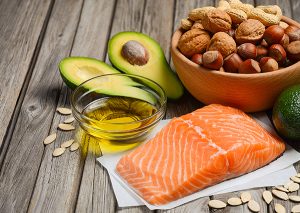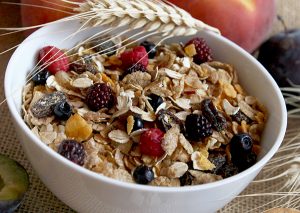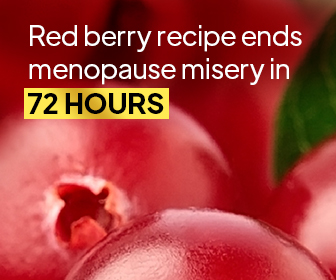The term “hacking” usually refers to the act of accessing computer data without permission. Lately, however, it has taken on new meaning, referring to tips and tricks you can employ to boost your health or to make your life easier.
Biohacking is simply the practice of “hacking” your own biology by making healthy changes to your diet and lifestyle in hopes of improving your health and optimizing the biological functions that keep you alive and well. In a way, it treats your body like a computer and, by utilizing certain tips and tricks, you can become a hacker for your own wellbeing.
In this article, you’re going to learn more about what biohacking is and how to make it work for you. You’ll find an assortment of basic hints, tips, and tricks to get the very best out of your body and mind by simply adjusting your habits and making some small changes in your life. Let’s get started!
Food is Fuel: Diet Hacks
You probably know the saying, “You are what you eat,” but did you know that it originated as a German saying, “Man ist was man isst”? This German saying has been thrown around a lot but you probably don’t eat in a way that reflects your goals. When you start to treat food like fuel for your body rather than another way to achieve pleasure, you’ll make massive improvements with your fitness and health. It can also help with other areas of life like mood, sexual health, and productivity.
When biohacking, start with the basics! Here’s how to do it:
1. Eat Protein

Protein is treated like a bodybuilders-only food group, but the fact is that you need protein just as much as Olympic athletes do. Every human tissue requires protein to repair itself and to develop and stay healthy as you age. Every meal should contain a high-quality protein source such as fatty fish, microgreens, grass-fed beef, chicken, turkey, eggs, or even a protein powder. Structure your meals around your proteins to make sure you’re starting it off right.
2. Fats Are Crucial

Dietary fats have gained a bad reputation in the past century but the science is finally starting to show people that dietary fats won’t make you fat. In fact, they’re incredibly important for health and wellbeing! Dietary fats should be your second stop after choosing your protein: high-quality fats like avocado, cultured dairy (such as yogurt and cheeses), eggs, nuts, raw cocoa, seeds and legumes. These will keep your hormone levels healthy and have positive effects on blood cholesterol, as well as metabolic health.
Choose your fats wisely and always work on balance: a mixture of healthy saturated and unsaturated fats is key and moderation is always recommended when it comes to dieting. Dietary fats should be considered in relation to the type of protein source you’re using and your daily fat intake.
3. Nutrients: The Key to Health and Longevity

Every meal should contain a fruit or vegetable. The nutrients in fruits and vegetables are extremely good for you, increasing almost every aspect of your health. Eating as large a variety of fruits and vegetables as you can is the best thing for your health.
Dietary fiber is the king of health foods, being present in the non-digestible parts of plant foods. Fiber increases almost every key health marker and doesn’t even add to caloric intake, meaning that you can pretty much eat as much as you want, within reason. This is found in dark, leafy greens, legumes, and whole grains. Get as much of this into your diet as possible, as it also reduces the risk of heart diseases and diabetes while keeping digestion regular and the gut healthy.
4. Food Timing: Less Is More

Intermittent fasting is a popular tool for weight loss and there certainly are cases in which it can be beneficial. If you’re aiming for better health and wellness rather than weight loss, however, it may be better to adopt a different strategy. Instead of going for long periods without eating, try eating smaller meals and snacks more frequently. Food timing can make a big difference in the way you feel and the habits that you develop. It is recommended that you eat a small meal at least every 3 hours.
Eating regularly is a great way to benefit from the thermic effect of food and to keep your blood sugar levels regular. Fasting diets aren’t bad for you, but they place a large glycemic and digestive burden on the body. Eating regularly will keep you satisfied and ensure that energy levels are constant throughout the day so you’re ready to face whatever challenges come your way.
5. Waters of Life: Hydrate for Maximum Performance

If you’re not drinking enough water, you’re wasting your time, literally. Hydration is a huge factor in mental performance and productivity – after all, the human brain is mostly water by weight and has huge metabolic requirements that require equally large amounts of water. If you live or work in a hot climate, this is even more important as you’re susceptible to dehydration which exacerbates almost every health problem that humans develop.
Keeping hydrated is incredibly simple but most people seem to forget how to do it! This biohack might be the simplest: keep a water bottle near you at all times and refill it whenever its empty. We guarantee that you’ll drink more water than ever and feel far more energised throughout the day. Your body will thank you for this, as hydration also directly contributes to the health of the kidneys, muscles, digestive system, sexual health, and protects against the onset of illness and disease.
6. Do It In 4: Get Your Life Together by Sleeping More

We all know that the most successful people put huge amounts of time into their craft, but what many people don’t seem to realize is that you’re going to be absolutely useless if you don’t get enough sleep. Life is stressful and you probably have serious demands that require you to stay up late or get up early, but one of the most important ways to achieve success is to be ruthlessly effective during your waking hours. There’s no benefit to waking up 3 hours earlier if you’re going to be half as effective during the time you’re awake!
Make sure you get a minimum of 8 hours of sleep per night – you’d be surprised at the difference this makes to your athletic, academic, and professional performance. A full eight hours may seem like too long, but it would only require you to go to bed at midnight and wake up at 8am. If you’re up earlier, go to bed earlier! Set a bedtime alarm that tells you when you need to begin winding down for bed. Your effectiveness during the day will boost immediately and your long-term health will also benefit.
One suggestion for improving your productivity is to attempt a dual-phase approach to sleep. This is a difficult one to pull off, as it involves a single long sleep of 8 hours or more and then a daytime nap of at least 45 minutes. This sleep structure sounds crazy when you look at the standard 9 to 5 lifestyle, but scientific evidence has suggested that sleeping during the day, when you’re at your most tired, is a great way to get yourself back to peak effectiveness. Consider how much time you waste in a day because of tiredness or lack of focus –it probably adds up to more than 45 minutes!
7. Active Relaxation Techniques

If you’re concerned with optimising your performance and effectiveness in life, there’s a good chance that you’re pushing yourself all the time. The problem with this is that it builds chronic stress, a crucial factor in the development of physical and mental health problems. When you’re hyping yourself up for the big conference, long shift, or hard training session, your body is in “fight or flight” mode and accumulates short- and long-term stress.
Spending too long in this anxious state is a fast route to immune system suppression, fatigue, depression, heart problems, poor metabolic health, and general lethargy. If you want to be able to perform at your best when it counts, spend some time focusing on relaxation and unwinding. This doesn’t mean a holiday in the Bahamas – simply schedule 15-30 minutes every day to focus on calming activities. Our favorites are yoga, candle-lit reading, or simple meditation – any activity that helps you clear your mind and dissociate yourself from the things that cause you anxiety will be great for re-balancing the hormones, combat the risk of heart disease, and ensure that you’re performing at your best when you return to your challenges.
While yoga and other forms of meditation provide a structure for mental relaxation, it doesn’t have to be a spiritual experience. Meditation for the modern professional is simply a green tea and time set aside to focus on simply doing nothing. We don’t spend much time in the present, our anxieties are always forcing us to plan ahead and worry, but doing nothing is a great way to combat stress-based illness or fatigue. Green tea is a great accompaniment because it is nutritious and contains GABA – a chemical that improves relaxation and sleep quality.
8. Cold Showers

Cold showers are a strange but effective method for improving your health. Taking cold showers has been linked to improved sex hormone secretion, for example, but the most important benefit of cold showers is that they are not hot showers. Hot showers are the least beneficial kind: where the hot shower contributes to excessive sweat and poor skin health, the cold shower keeps skin and hair healthy and in great condition.
Cold showers are also the ultimate wake-up tool: we defy you to have a cold shower first thing in the morning and not feel awake immediately. A cup of coffee may be a great start to the day, but the sensation of ice-cold water hitting your tired body is an unparalleled kickstart for the body and mind.
9. Exercise

Exercise is not optional if you’re looking to improve your whole life and optimise your performance. A combination of resistance and cardio exercise is the best way to maximise fitness and health, but for the busy professional it may be best to try waking up 20 minutes early to get a walk in before you start your daily routine. We know this isn’t going to give you a chiselled physique, but being outside is a fantastic way to wake up and get a head start on the day.
Pre-dawn walks are also a fantastic opportunity to get your meditation done without any of the usual distractions of the modern world. If you really want to focus yourself and give yourself the edge, leave your phone and other electronic devices at home for the duration of your walk.
10. Breakfast Hard

Like exercise, breakfast is not optional if you want to maximize your health. Breakfast is the best meal of the day and not only because breakfast foods are so varied and delicious. Breakfast is the first meal of the day and sets the tone for things to come: if you’re going to be working or training hard, you need to make sure that your body and brain are well-fuelled, which is only possible if you start the day with a big breakfast.
You might think that you can snack during the day or just eat at lunch, but this is an easy way to waste the early hours of the day when you should be at your most productive. If you’ve followed the rest of these biohacks, there is no reason for you to be unproductive of tired between waking up and noon. If you’re not eating breakfast, these peak productivity hours are being wasted because you simply didn’t eat enough. We recommend a balance of proteins, fats, and slow-release carbohydrates for an outstanding breakfast.
Summary: How Biohacking Can Improve Health and Longevity
As you have well learned, the process of “hacking” your biology involves making simple changes to your diet and lifestyle in order to support your long-term health and wellness.
The 10 biohacks provided in this article are simple and you may already be implementing some of them. If not, adding these biohacks to your routine or simply improving your adherence to the few you’re already implementing, you’ll notice huge improvements in your competence and energy levels throughout the day.

The more you know about your own biology, the better you will be able to support it by making smart and healthy decisions regarding your diet and lifestyle. Here are some simple tips to put these biohacks to use:
Action Steps: How to Hack Your Biology
- Make healthy improvements to your diet by increasing your protein intake, balancing your intake of healthy fats, and including fruits and vegetables in each meal.
- Focus less on counting calories and don’t restrict yourself. Instead, try to eat smaller meals more frequently to keep your metabolism running strong and your body fuelled with natural energy.
- Take simple steps to improve your health and daily performance by drinking plenty of water, getting a good night’s sleep, and making time for stress-relieving activities and exercise.
- Start your day off right with a cold shower to wake you up then enjoy a healthy breakfast to give your body the fuel it needs to stay awake and productive throughout the day.
If you’re committed to your success, in whatever field, you have to live out the necessary commitment and discipline to achieve them. These 10 biohacks are a fantastic starting point to improving your health and performance, whether you’re aiming at work goals or Olympic medals!








